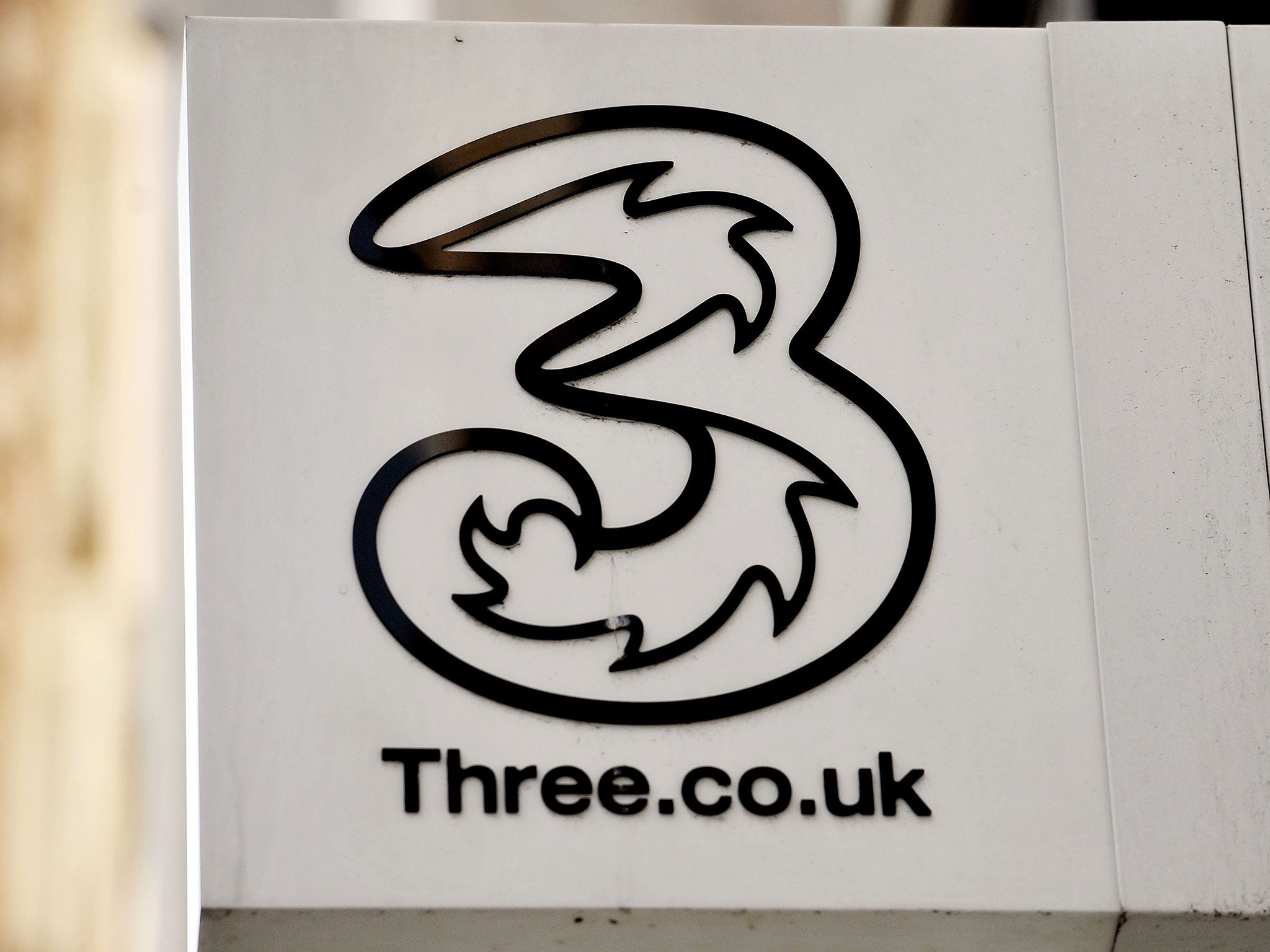Three bans ads from its mobile network, arguing that companies should pay for people to download them
The network says that customers shouldn’t have to pay to receive ads, that they often extract data about users and that customers shouldn’t have their experience interrupted by pop-ups

Your support helps us to tell the story
From reproductive rights to climate change to Big Tech, The Independent is on the ground when the story is developing. Whether it's investigating the financials of Elon Musk's pro-Trump PAC or producing our latest documentary, 'The A Word', which shines a light on the American women fighting for reproductive rights, we know how important it is to parse out the facts from the messaging.
At such a critical moment in US history, we need reporters on the ground. Your donation allows us to keep sending journalists to speak to both sides of the story.
The Independent is trusted by Americans across the entire political spectrum. And unlike many other quality news outlets, we choose not to lock Americans out of our reporting and analysis with paywalls. We believe quality journalism should be available to everyone, paid for by those who can afford it.
Your support makes all the difference.Three is about to start blocking ads, meaning that they will never even arrive on people’s phones.
In one of the first roll-outs of network-based ad-blocking, the company has announced that users will have ads filtered out to help their experience on the internet.
Ad blockers allow people to filter out ads from websites they are looking at, and have been common on computers for years. But they were introduced onto the iPhone in an update last year, and now are being added before they even reach the phone.
The technology had been introduced for three reasons, the company said. It argued that people shouldn’t pay for data that was being used for ads, that much marketing didn’t protect users security and that it was unfair for people to “have their data experience in mobile degraded by excessive, intrusive, unwanted or irrelevant adverts”.
The company said that it would “work with Shine Technologies and the advertising community to deliver a better, more targeted and more transparent mobile ad experience to customers”. That seemed to imply that the company will allow through some ads so long as they comply with certain standards — a policy that other ad-blockers often use, usually allowing ads through if they pay a fee or are deemed not to be intrusive.
Three said that it would reveal exactly how the new technology will work over the coming months. The technology that blocks the ads is made by Shine Technologies, which the company said will make it easy to implement in other Three networks around the world — Three Italy has already said that it will be introducing them.
Join our commenting forum
Join thought-provoking conversations, follow other Independent readers and see their replies
Comments